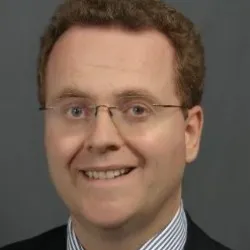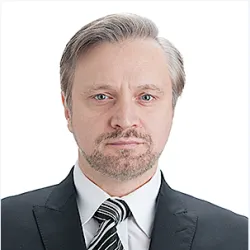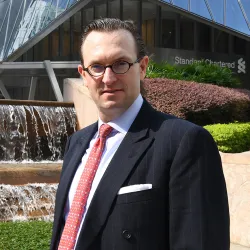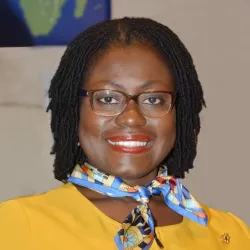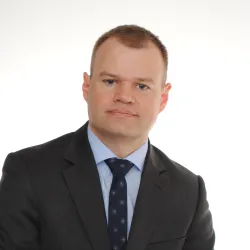Legal Risks: Good Governance, Compliance and an Evolving Legal Environment main page 2021
Legal Risks: Good Governance, Compliance and an Evolving Legal Environment
Legal Risks: Good Governance, Compliance and an Evolving Legal Environment
September 6 – 9
Chair: Atilla Arda, senior financial sector expert, International Monetary Fund
Disruptive forces continue to present unprecedented challenges to central banks and their lawyers.
Increasingly legal officers in central banks recognise the need to evaluate the implications of a changing policy environment, new responsibilities such as climate change, and innovations such as digital money.
Central bank lawyers must understand the shift in risks associated with these fundamental changes. The international dimension of these challenges makes the role of lawyers even more demanding. New skills and approaches are needed.
This course, “Legal Risks: Governance, Compliance and an Evolving Legal Environment” is designed to equip central bankers with the tools to meet these challenges.
Each day will feature three hours of expert-led live content to maximise the opportunity to share and learn. The course chair will ensure participants have opportunities to network throughout the programme.
Timings: 8am-12pm (ET) | 1pm-5pm (BST) | 8pm-12am (SGT)
Course agenda
Two weeks prior to your training course you will be emailed access to our content hub with course materials, including a trial to Central Banking if you are not already subscribed. There will be a combination of articles, reports and presentations that will contribute to two hours of preparation time for the live content. Presentations for the sessions will also be held here subject to the speaker approval.
The Changing Legal Landscape
13:00 – 13:30
Course introduction
Course introduction session led by the chair
13:00 - 13:15
- Introductions and welcome from the chairperson
- Overview of the training course
- Discussion of the delegate expectations
Atilla Arda is a Senior Financial Sector Expert in the International Monetary Fund’s (IMF) Monetary and Capital Markets Department; prior to this, he was a Senior Counsel in the IMF’s Financial & Fiscal Law Unit. Mr. Arda joined the IMF in February 2007 from the central bank of the Netherlands where he held a Senior Counsel position and was Substitute Secretary to the Board; he also contributed to the workings of the Legal Committee of the European System of Central Banks. Mr. Arda has consulted for over 70 countries, half of which on-site, including for countries as diverse as Egypt, Greece, Indonesia, Ireland, Jamaica, Kosovo, Myanmar, Portugal, Sri Lanka, and Ukraine. Most recently, he was the deputy head for the Switzerland Financial Sector Assessment Program (FSAP), and he led the FSAP crisis readiness teams for the United Kingdom, United States, and euro area. Mr. Arda is specialized in central bank governance and law, financial law, institutional frameworks for macroprudential policy and crisis management, financial safety net arrangements, crisis preparedness, and bank resolution regimes. Mr. Arda undertook his undergraduate at the Amsterdam Academy of Banking and Finance; he is a graduate of both the Amsterdam Law School and the Amsterdam Graduate School of Law of the University of Amsterdam, where he specialized in international economic and financial law. He is a regular speaker at international conferences and has been chairing Central Banking Publications’ course on ‘Central Bank Governance and Legal Risks’ since 2014.
13:30 – 14:00
The interaction of new mandates, autonomy, and governance
14:15 - 15:00
- Overview of changing central bank function and risk profile
- Legal foundations of effective corporate governance
- Comparative analysis of developments in selected jurisdictions
- Discussion: how are legal departments responding to the impact of current disruptive forces?
14:00 – 14:15
Break
14:15 - 14:30
14:15 – 15:15
Central bank transparency code (CBT)
14:30 - 15:30
- Enhanced transparency needs for central banks
- Overview and key concepts
- Key design considerations
- Conducting a CBT Review
Ghiath Shabsigh is the Assistant Director of the Monetary and Capital Market Department at the IMF, with responsibilities covering, central banking, fintech and financial sector development. Since joining the IMF, he worked on economic reform programs, financial sector deepening, financial stability assessment programs, and capacity building in central banks in countries in Africa, Central and Southeast Asia, Europe, Middle East, and North America. His previous work experience includes working as a financial analyst and teaching. Mr. Shabsigh holds a Ph.D. degree in Monetary Economics and International Finance, a MA in Economic Development, a B.Sc. in Economics and Business, and several professional qualifications in banking and securities market operations.
15:15 – 15:45
15:45 – 16:45
Climate change: new risk to central banks
15:45 - 16:45
- Impact of climate change on central banks’ mandates and responsibilities
- Understanding the legal implications of climate change policies
- Examples of national and cross-jurisdictional initiatives
- Discussion: do central banks have sufficient legal powers to effectively contribute to the greening of the financial system?
Gábor Gyura has a masters degree in Economics and also holds a PhD in Earth Sciences. He was founding head of the Sustainable Finance Department at the Central Bank of Hungary and was responsible for the Bank’s green agenda between 2018 and 2022. His main work area was the development of the domestic green finance market and the improvement of environmental risk management in the financial system, also representing the Bank in various international committees related to sustainable and climate finance such as the Network for Greening the Financial System (NGFS) and the European Supervisory Authorities. Since May 2022 Gabor is a consultant at the United Nations Environment Program Finance Initiative (UNEPFI), and since 2021 also acts as assistant professor at the Budapest University of Technology and Economics’ Finance Department, teaching and researching sustainable finance.
New Frameworks and Strategies for Legal Risks
13:00 – 14:00
Overview of the foundations of RegTech and SupTech
13:00 - 14:00
- Evolutionary journey of financial, regulatory, and supervisory technology
- How has RegTech and SupTech impacted the financial services industry?
- Identifying key technologies in the areas of DLT, Big Data analytics, machine learning and cloud computing
- Examples of applications in regulatory reporting and compliance risk management
Douglas W. Arner is the Kerry Holdings Professor in Law, RGC Senior Fellow in Digital Finance and Sustainable Development and Associate Director of the HKU-Standard Chartered Foundation FinTech Academy at the University of Hong Kong. In addition, he is Associate Dean (Taught Postgraduate and Development) of the Faculty of Law at HKU and co-founder and former Director of HKU’s Asian Institute of International Financial Law, as well as Faculty Director and co-founder of the LLM in Compliance and Regulation, the LLM in Corporate and Financial Law, the Law, Innovation, Technology and Entrepreneurship (LITE), and the East Asian International Economic Law and Policy Programmes. Douglas served as Head of the HKU Department of Law from 2011-2014, as Director of the Duke University-HKU Asia America Institute in Transnational Law from 2005-2016, and as an inaugural member of the Hong Kong Financial Services Development Council from 2013-2019. In 2020 he was awarded an inaugural Hong Kong Research Grants Council Senior Fellowship to study the role of digital finance in financial inclusion and the UN Sustainable Development Goals. Douglas is a Visiting Professor and Senior Visiting Fellow of Melbourne Law School of the University of Melbourne, a Visiting Professorial Fellow of the Faculty of Law of UNSW Sydney, a non-executive director of NASDAQ and Euronext listed biotechnology firm Aptorum Group, an Advisory Board Member of the Global Impact FinTech (GIFT) Forum, Policy 4.0 and of the Centre for Finance, Technology and Entrepreneurship (CFTE), and co-founder and an executive board member of the Asia Pacific Structured Finance Association. Douglas has published eighteen books and more than 200 articles, chapters and reports on international financial law and regulation, including most recently Reconceptualising Global Finance and its Regulation (Cambridge 2016) (with Ross Buckley and Emilios Avgouleas) and The RegTech Book (Wiley 2019 (Janos Barberis and Ross Buckley). His recent papers are available on SSRN at https://papers.ssrn.com/sol3/cf_dev/AbsByAuth.cfm?per_id=524849 , where he is among the top 50 authors in the world and among the top 15 authors in the area of law by total downloads. Douglas led the development of Introduction to FinTech – launched with edX in May 2018 and now with over 100,000 learners spanning almost every country in the world – and the foundation of the edx-HKU Online Professional Certificate in FinTech. In addition, he has served as a consultant with, among others, the World Bank, Asian Development Bank, UN, APEC, Alliance for Financial Inclusion, and European Bank for Reconstruction and Development. He has lectured, co-organised conferences and seminars and been involved with financial sector reform projects around the world. Douglas has been a visiting professor or fellow at Duke, Harvard, the Hong Kong Institute for Monetary Research, IDC Herzliya, McGill, Melbourne, National University of Singapore, University of New South Wales, Shanghai University of Finance and Economics, and Zurich, among others.Douglas W. Arner is the Kerry Holdings Professor in Law, RGC Senior Fellow in Digital Finance and Sustainable Development and Associate Director of the HKU-Standard Chartered Foundation FinTech Academy at the University of Hong Kong. In addition, he is Associate Dean (Taught Postgraduate and Development) of the Faculty of Law at HKU and co-founder and former Director of HKU’s Asian Institute of International Financial Law, as well as Faculty Director and co-founder of the LLM in Compliance and Regulation, the LLM in Corporate and Financial Law, the Law, Innovation, Technology and Entrepreneurship (LITE), and the East Asian International Economic Law and Policy Programmes. Douglas served as Head of the HKU Department of Law from 2011-2014, as Director of the Duke University-HKU Asia America Institute in Transnational Law from 2005-2016, and as an inaugural member of the Hong Kong Financial Services Development Council from 2013-2019. In 2020 he was awarded an inaugural Hong Kong Research Grants Council Senior Fellowship to study the role of digital finance in financial inclusion and the UN Sustainable Development Goals. Douglas is a Visiting Professor and Senior Visiting Fellow of Melbourne Law School of the University of Melbourne, a Visiting Professorial Fellow of the Faculty of Law of UNSW Sydney, a non-executive director of NASDAQ and Euronext listed biotechnology firm Aptorum Group, an Advisory Board Member of the Global Impact FinTech (GIFT) Forum, Policy 4.0 and of the Centre for Finance, Technology and Entrepreneurship (CFTE), and co-founder and an executive board member of the Asia Pacific Structured Finance Association. Douglas has published eighteen books and more than 200 articles, chapters and reports on international financial law and regulation, including most recently Reconceptualising Global Finance and its Regulation (Cambridge 2016) (with Ross Buckley and Emilios Avgouleas) and The RegTech Book (Wiley 2019 (Janos Barberis and Ross Buckley). His recent papers are available on SSRN at https://papers.ssrn.com/sol3/cf_dev/AbsByAuth.cfm?per_id=524849 , where he is among the top 50 authors in the world and among the top 15 authors in the area of law by total downloads. Douglas led the development of Introduction to FinTech – launched with edX in May 2018 and now with over 100,000 learners spanning almost every country in the world – and the foundation of the edx-HKU Online Professional Certificate in FinTech. In addition, he has served as a consultant with, among others, the World Bank, Asian Development Bank, UN, APEC, Alliance for Financial Inclusion, and European Bank for Reconstruction and Development. He has lectured, co-organised conferences and seminars and been involved with financial sector reform projects around the world. Douglas has been a visiting professor or fellow at Duke, Harvard, the Hong Kong Institute for Monetary Research, IDC Herzliya, McGill, Melbourne, National University of Singapore, University of New South Wales, Shanghai University of Finance and Economics, and Zurich, among others.
14:00 – 14:15
Break
14:00 - 14:15
14:15 – 15:15
15:15 – 15:30
Break
15:15 - 15:30
15:30 – 16:30
Towards a legal framework for CBDCs, stablecoins and crypto assets
13:00 - 14:00
- CBDC, stablecoins and crypto ssets: what’s in a name?
- Are these assets legally “money”?
- CBDC: a focus on governance and risk
- CBDC: key legal issues
Wouter Bossu currently serves as Senior Counsel and Deputy Unit Chief for the Legal Department of the International Monetary Fund (IMF). He is of Belgian origin and holds degrees in law (Leuven) and business administration (Louvain-la-Neuve). Prior to joining the Fund, he worked for the legal departments of the Belgian and the European Central Banks. His specialties are the legal frameworks of central banking, financial markets and financial stability.
Safeguarding Financial Soundness
12:45 – 14:00
Building blocks for liquidity & funding in resolution and cross-border bank resolution
13:00 - 14:00
- Case study highlighting the importance of funding in resolution
- Emergency liquidity assistance in supporting resolution: what are the limitations
- Some country developments and discussion around remaining challenges
- Central bank liquidity facility design considerations and a review of the HKMA recent liquidity facility framework revamp
- A review of the care for resolution regimes, key components to ensure bank resolvability, ahead of a review of some key considerations to ensure effective cross border resolution planning cooperation between home and host authorities
Eamonn White
Independent consultant
Ardhill Advisory and former Bank of England and Hong Kong Monetary Authority
Eamonn is Director of Ardhill Advisory LTD, an independent consulting firm focused on advising financial institutions, central banks, national authorities and international organisations, including the International Monetary Fund, on financial stability policy. This includes advising on prudential regulation, bank resolution, central bank liquidity and crisis management.
Between 2020 and 2022, Eamonn was a senior advisor to the Bank of England (BoE), leading a resolution planning team for a large UK bank as part of the BoE's Resolvability Assessment Framework, contributing to UK resolution policy development and cross-border cooperation with international authorities on resolution issues.
From 2016 and 2019, Eamonn was Head of the Resolution Office at the Hong Kong Monetary Authority (HKMA). During this time, he was responsible for leading the development of the domestic statutory/regulatory resolution regime for all Hong Kong banks, leading resolution planning for banks in Hong Kong, often in close cooperation with foreign authorities, and contributing to the international cross-border resolution policy framework and resolution plans for global banks through his work as a member of the Financial Stability Board committees and for the cooperative organization of East Asia-Pacific Central Banks (EMEAP).
Before joining the HKMA, Eamonn worked on financial stability topics, including bank resolution at the Bank of England for 4 years. He was also a senior policy advisor to the Chancellor of the Exchequer at HM Treasury (HMT) for 7 years. At HMT he worked at the centre of the UK’s policy and strategic response to the financial crisis, both managing bank failure and the policy response to the Too-Big-To-Fail problem.
In his early career, Eamonn was a diplomat in Washington DC, covering EU foreign policy and trade issues.
Diarmuid has spent a considerable part of his career working on and writing about financial resilience and the operational aspects of central banking, and he has worked across the globe with many central banks and national supervisory and resolution authorities.
Diarmuid began his central banking career at the Central Bank of Ireland (CBI) and was part of the team that played a key role in the CBI’s response to the Irish financial crisis. Diarmuid has also worked in the market operations area of the European Central bank and spent several years at the International Monetary Fund (IMF), in both the central banking and crisis management areas, where he participated in the IMF’s technical assistance and Financial Sector Assessment Program (FSAP) work. Having returned to the CBI in 2018, Diarmuid took over responsibility for Brexit and fintech related banking/payment institution/e-money authorisations and banking contingency planning, establishing a new unit. In 2020, Diarmuid undertook a fellowship program with the Financial Stability Institute at the Bank for International Settlements in Basel focusing on crisis management issues.
In late 2021 Diarmuid commenced a secondment to the EU Commission, where he is now part of the Commission’s team responsible for implementing its published Renewed Sustainable Finance Strategy where his focus continues to be on financial resilience issues.
Diarmuid also co-leads the development and delivery of a dedicated comparative central banking module as part of a new online Global Central Banking and Financial Regulation master’s degree course with Warwick Business School (and in partnership with the Bank of England).
14:00 – 14:15
Break
14:00 - 14:15
14:15 – 15:15
The simultaneous resolution of several banks: the experience of Ghana and recent reforms to promote financial stability, integrity and inclusion
14:15 - 15:15
- Example of simultaneous bank resolution of several banks
- Overview of short and medium term steps
- The role and responsibilities of the legal department
- Discussion: what is the role of the central bank in building confidence and resilience
Mrs. Elsie Addo Awadzi was appointed 2nd Deputy Governor of the Bank of Ghana in February 2018, with responsibility for financial supervision, financial stability, and financial integrity, among others. She is the second woman to be appointed Deputy Governor in the Bank’s 62-year history.
Before her appointment as Deputy Governor, she was Senior Counsel of the Financial and Fiscal Law Unit of the International Monetary Fund (IMF)’s Legal Department, based in Washington, D.C. In that role, she helped to assess the stability of financial systems in a number of G-20 member countries, and provided technical assistance to help strengthen financial systems and manage financial crises in a variety of IMF member countries. She also advised on legal and institutional aspects of public financial management, public debt management, and fiscal responsibility frameworks.
15:15 – 15:30
Break
15:15 - 15:30
15:30 – 16:30
Legal risks of collateral taking
15:30 - 16:30
- Taking loan collateral for central bank lending
- Due diligence process of collateral taking
- Drawdown and transfer
- Enforcement
Strengthening Governance; Protecting Independence
13:00 – 14:00
A central bank at court: ECB case study
13:00 - 14:00
- The calculus of credibility: mandate, reputation, independence and accountability
- Experience of the European Central Bank in defending its monetary policy
- Impact on policy, processes and reputation
- Case study: lessons learnt from court experience and preparations
Kestutis Laurinavicius is heading a team of lawyers at the European Central Bank (ECB) working on monetary policy, foreign reserve management and various other financial law topics. The team is handling a number of cases in which the ECB has been sued before the Court of Justice of the European Union. Mr Laurinavicius represents the ECB in court cases, advises policy colleagues on the legal aspects of monetary policy and other market operations, and reviews and prepares briefings to the decision-making bodies of the ECB. Since his start at the ECB in 2003, Mr Laurinavicius has been dealing with legal questions relating to payment and securities settlement systems, issuance of banknotes, governance and the institutional aspects of the supervisory function. Prior to joining the ECB, Mr Laurinavicius worked at the central bank of Lithuania, advising on legal issues relating to market operations and the implementation of EU financial services law. In 2010-2011 he was on secondment to the International Monetary Fund’s Legal Department, working on financial sector assessments, new legislative proposals for bank resolution and participating in technical assistance missions to Armenia, Azerbaijan and Eritrea.
14:00 – 14:15
Break
14:00 - 14:15
14:15 – 15:15
Role of lawyers in crisis preparedness and management
This session will be an interactive workshop with the opportunity for participants to interact and engage.
14:15 - 15:15
Atilla Arda is a Senior Financial Sector Expert in the International Monetary Fund’s (IMF) Monetary and Capital Markets Department; prior to this, he was a Senior Counsel in the IMF’s Financial & Fiscal Law Unit. Mr. Arda joined the IMF in February 2007 from the central bank of the Netherlands where he held a Senior Counsel position and was Substitute Secretary to the Board; he also contributed to the workings of the Legal Committee of the European System of Central Banks. Mr. Arda has consulted for over 70 countries, half of which on-site, including for countries as diverse as Egypt, Greece, Indonesia, Ireland, Jamaica, Kosovo, Myanmar, Portugal, Sri Lanka, and Ukraine. Most recently, he was the deputy head for the Switzerland Financial Sector Assessment Program (FSAP), and he led the FSAP crisis readiness teams for the United Kingdom, United States, and euro area. Mr. Arda is specialized in central bank governance and law, financial law, institutional frameworks for macroprudential policy and crisis management, financial safety net arrangements, crisis preparedness, and bank resolution regimes. Mr. Arda undertook his undergraduate at the Amsterdam Academy of Banking and Finance; he is a graduate of both the Amsterdam Law School and the Amsterdam Graduate School of Law of the University of Amsterdam, where he specialized in international economic and financial law. He is a regular speaker at international conferences and has been chairing Central Banking Publications’ course on ‘Central Bank Governance and Legal Risks’ since 2014.
Bruce Hickey is Senior Counsel in the Complex Financial Institutions Section of the FDIC’s Legal Division (Resolution & Receivership Branch). His work focuses on resolution planning and domestic and foreign coordination of crisis management activities. Prior to joining the FDIC, Bruce was a litigator for over a decade with Sullivan & Cromwell, where he represented numerous U.S. and non-U.S. banking organizations. He holds an AB from Princeton, a BA and MSt from Oxford, and a JD from Harvard.
15:15 – 15:45
15:45 – 16:15
Closing remarks and delegate action plans
Concluding session led by the chair
15:45 - 16:15
- Summary of the course
- Discussion of the observed trends and case studies
- Application of learning points in the delegates’ home organisations
- Preparation of action points
16:15 – 16:30
Feedback forum
16:15 - 16:30
We will send a link in this session to the feedback form and would kindly ask that you help us improve the training product by completing the survey. We would also welcome and verbal feedback in this session.
Date: September 23
The Implementation Workshop is a chair-led forum where attendees will have the opportunity to discuss challenges around implementing the ideas they have learnt during the Live Content. Prior to the workshop you will be emailed questions to prepare in order to gain the most from the session with peers.
14:00 – 15:00
Implementation Workshop
11:00 - 12:00
Benefits of attending the Implementation Workshop:
- Developments in the area since the live content sessions, including new resource material
- Questions arising since returning to the central bank
- Challenges of implementation: where are the roadblocks?
- Medium-term goals: what is realistic?
- Establishment of group network to keep in touch with peers and share best practices
Learning outcomes
At the conclusion of the training, participants will have gained new knowledge and a more comprehensive understanding of:
- Implications of climate risk for central banks – a lawyer’s guide
- Key features of legal framework for CBDCs and stablecoins
- Legal ramifications of AI and machine learning
- Opportunities and risks in legal tech and fintech
- Legal risks of collateral taking
Chair
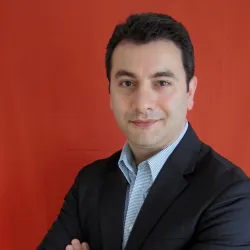
Atilla Arda
Senior financial sector expert
International Monetary Fund
Atilla Arda is a Senior Financial Sector Expert in the International Monetary Fund’s (IMF) Monetary and Capital Markets Department; prior to this, he was a Senior Counsel in the IMF’s Financial & Fiscal Law Unit. Mr. Arda joined the IMF in February 2007 from the central bank of the Netherlands where he held a Senior Counsel position and was Substitute Secretary to the Board; he also contributed to the workings of the Legal Committee of the European System of Central Banks. Mr. Arda has consulted for over 70 countries, half of which on-site, including for countries as diverse as Egypt, Greece, Indonesia, Ireland, Jamaica, Kosovo, Myanmar, Portugal, Sri Lanka, and Ukraine. Most recently, he was the deputy head for the Switzerland Financial Sector Assessment Program (FSAP), and he led the FSAP crisis readiness teams for the United Kingdom, United States, and euro area. Mr. Arda is specialized in central bank governance and law, financial law, institutional frameworks for macroprudential policy and crisis management, financial safety net arrangements, crisis preparedness, and bank resolution regimes. Mr. Arda undertook his undergraduate at the Amsterdam Academy of Banking and Finance; he is a graduate of both the Amsterdam Law School and the Amsterdam Graduate School of Law of the University of Amsterdam, where he specialized in international economic and financial law. He is a regular speaker at international conferences and has been chairing Central Banking Publications’ course on ‘Central Bank Governance and Legal Risks’ since 2014.
